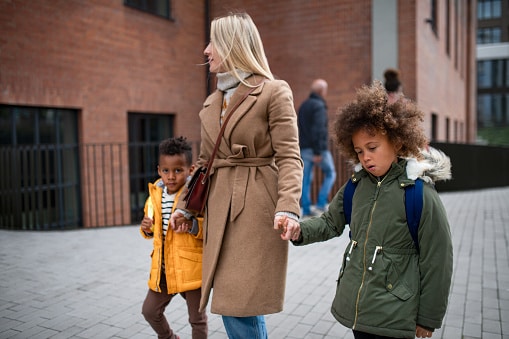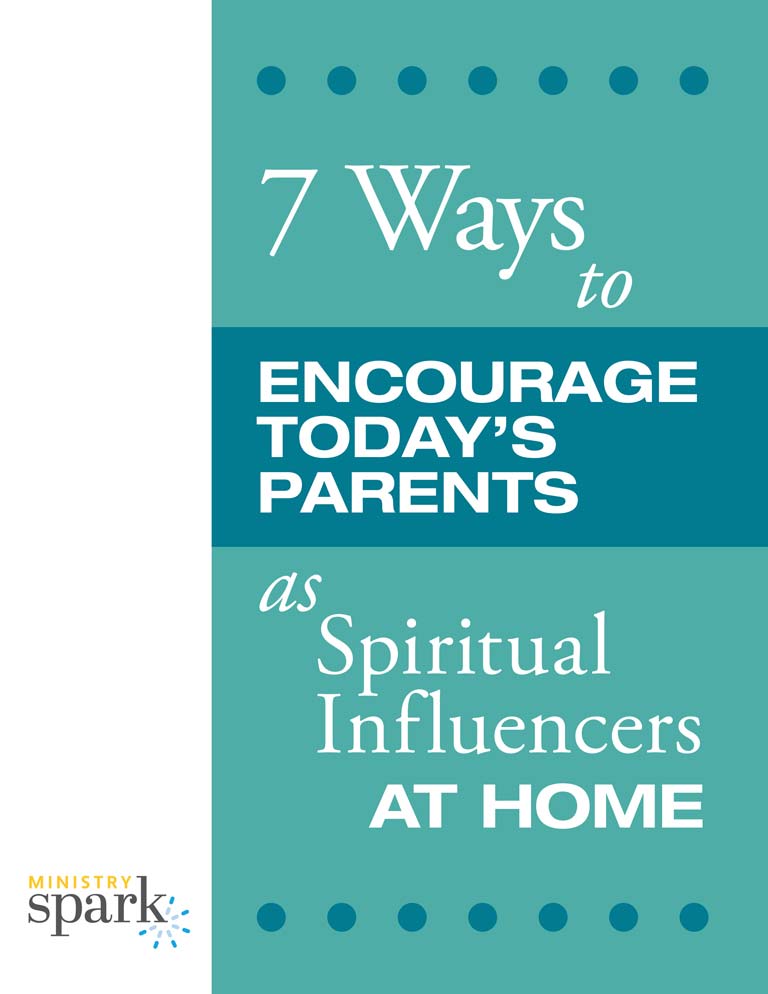When I was 10, my family’s move to another country removed a lot of my support systems. But adjusting to the new environment also meant I had the opportunity to meet new adults who would fill in the gaps the move created.
These trusting adults had huge influence in my life—people like the second-grade teacher who inspired me to work with kids when I grew up. The couple who ended up like my second parents and helped influence my spiritual growth. Surrogate aunts, uncles, and cousins helped fill in those relationships that diminished through transitions.
In the Bible we see a great example of a child who has a relationship with another adult who mentors him, is supportive of him, and helps him grow spiritually.
In 1 Samuel 1-3, we see that Hannah dedicates Samuel to the Lord. Samuel stays in the temple with Eli, the priest. Eli is with Samuel as he grows and helps him hear the voice of the Lord when He calls. Samuel honors Eli by assisting him in the temple.
He grows to be a prophet and judge over Israel, partly due to Eli’s early influence in his life. Samuel had a trusting, caring adult in his life in addition to his parents, and this led to positive results in his life.

Role Models Outside the Home
In working with kids, we use risk factors to conceptualize the things that increase the chance of experiencing potentially harmful events. Protective factors are the positive things that cushion the effects of risk factors or prevent the risk factor in the first place.
Samuel had a trusting, caring adult in his life in addition to his parents, and this led to positive results in his life.
Both risk and protective factors can be at the individual, family, and community levels. Other adults who are outside the family and serve as trusted, caring supports for the child are a key protective factor. These trusted, caring adults can serve as a mentors or role models for children who need them, or as in my case, they can fill in the gaps that other adults no longer can.
These trusted adults can help a child grow and develop to be emotionally, physically, and spiritually healthy.
In the church, it’s easy to celebrate the well-deserved work of the parents in the lives of the children in our ministry. The other adults, the ones who don’t have days dedicated to celebrating them, also deserve recognition for their hard work in children’s lives. In my own church, there are children who are brought to church by others besides their own parents.
We should honor the children’s fathers and mothers, as well as the trusted, caring adults in their lives.
Honoring Trusted Adults
A simple idea that my children’s ministry used on Mother’s Day and Father’s Day last year was to honor all maternal and paternal figures in the children’s lives, beyond just their mother and father. Instead of having the children decorate cards specifically for their mother or father, we had them create a card for someone who was meaningful to them.
It could have been their mom or dad, but we also encouraged them to make cards for aunts, uncles, grandparents, teachers, friends, coaches, and anyone else they could think of who had a positive impact on them.
We should honor the children’s fathers and mothers, as well as the trusted, caring adults in their lives.
In doing this, we not only recognized the contributions of others, but we also gave those who came from a variety of backgrounds, experiences, and family structures flexibility to celebrate who they wanted to.

Serving Together
Another way that kids can honor the adults in their lives is by serving together. The local church is a great place to do that!
One of my favorite stories of how I’ve seen this is through the intergenerational relationships we have. One of my volunteer teachers was looking for a high school student to teach with her and help her in one of our Sunday school classes. She had continued a relationship with a family whose kids she had taught 10 years ago. She was able to ask this teen to teach with her, and he was able to honor their relationship by choosing to serve together.
This also encouraged intergenerational ministry and connection across age groups.
Acts of Kindness
We can encourage the kids in our ministries to honor adults in their lives by practicing acts of kindness. How can they do something nice for the adults in their life?
For younger kids, maybe it’s being extra helpful and listening the first time.
For older kids and teens, acts of service can be a great way to show their love and respect. Can they babysit or help cook a meal? Can they take over some chores or do something to go the extra mile?
A trusting, caring adult can be transformative for a child. You might be this adult in a child’s life. A mentor, a role model, a coach, a friend. Whose young life have you changed for the better? Which kid in your life or ministry would benefit from this protective nature of a trusting, caring adult?
Let’s help the kids in our ministries honor those adults in their lives by encouraging them to thank those trusted adults for all of their hard work to help them grow.

Ready to help parents create an environment for spiritual growth?

Ready to help parents create an environment for spiritual growth?












